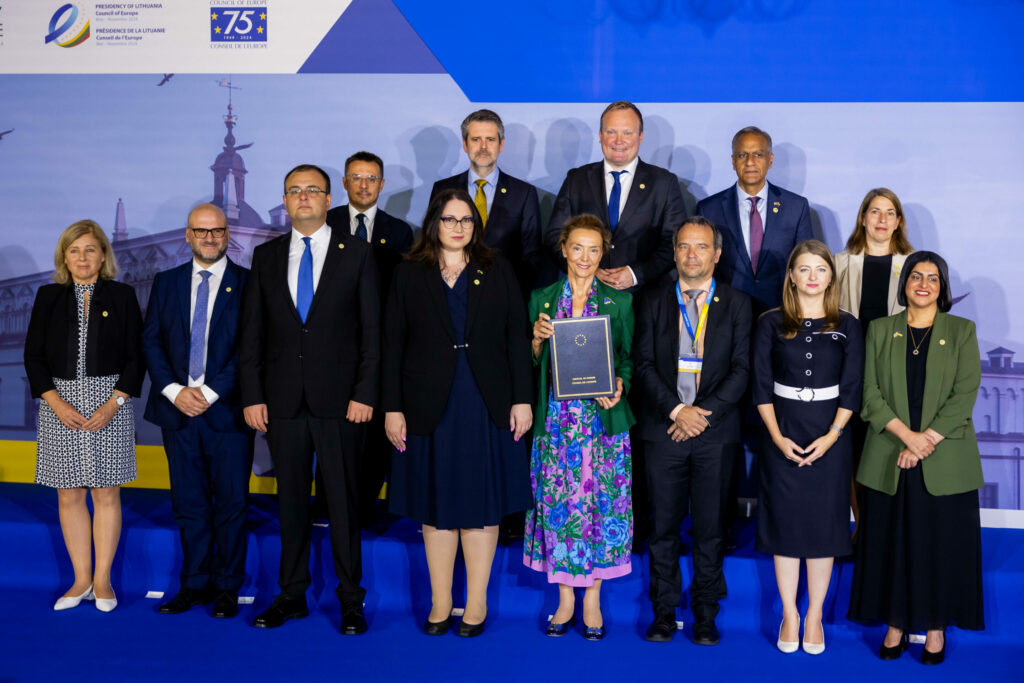The EU today signed up to the world's first legally binding international treaty on artificial intelligence (AI). The Council of Europe Framework Convention on Artificial Intelligence was signed on Thursday by Andorra, Georgia, Iceland, Norway, the Republic of Moldova, San Marino, the United Kingdom, Israel, the United States of America and the European Union.
The treaty aims to ensure that AI systems are compatible with human rights, democracy and the rule of law. Signatory nations agree to transpose these aims into national law.
European Commission Vice-President for Values and Transparency, Věra Jourová, signed the Convention on behalf of the EU at an informal conference of Council of Europe Ministers of Justice in Vilnius, Lithuania. The Commission noted in a press release that the international treaty is already "fully compatible" with EU law, in particular the EU's ground-breaking AI Act, which was the first comprehensive AI legislation to be adopted globally.
Keeping a leash on AI
Key concepts in the Convention include the need for a risk-based approach to AI, transparency along the value chain of AI systems and AI-generated content, detailed documentation obligations for AI systems identified as high-risk, and the option to ban AI systems considered a clear threat to fundamental rights.
The treaty will apply to activities within the lifecycle of an AI system being used by a public authority or by private actors operating on their behalf.
In the private sector, those using AI systems must address risks and impacts in a way that aligns with the Convention's goals, but they have the option to either apply the Convention's obligations directly or implement alternative, appropriate measures.
There are certain exemptions, as the Convention will not apply to research and development, or matters of national security.
The Convention also establishes a follow-up mechanism, the Conference of the Parties, where official representatives from signing parties can meet to determine how well the provisions of the treaty are being implemented, and make recommendations to States.
A global agreement
Negotiations on forming an international AI treaty first started in September 2022. These involved the European Commission (on behalf of the EU), other Council of Europe Member States, the Holy See, the US, Canada, Mexico, Japan, Israel, Australia, Argentina, Peru, Uruguay, and Costa Rica.
The final Convention also received input from 68 international representatives from civil society, academia, industry, and other international organisations.
Council of Europe Secretary General Marija Pejčinović Burić said the Convention is designed to ensure that the rise of AI "upholds our standards, rather than undermining them".
"It is a strong and balanced text, the result of the open and inclusive approach by which it was drafted and which ensured that it benefits from multiple and expert perspectives. The Framework Convention is an open treaty with a potentially global reach. I hope that these will be the first of many signatures and that they will be followed quickly by ratifications so that the treaty can enter into force as soon as possible," she said.
This signature expresses the EU’s intention to become a party to the Convention. Now the European Commission will prepare a proposal for a Council decision to conclude the Convention, and the European Parliament will also have to give its consent.

